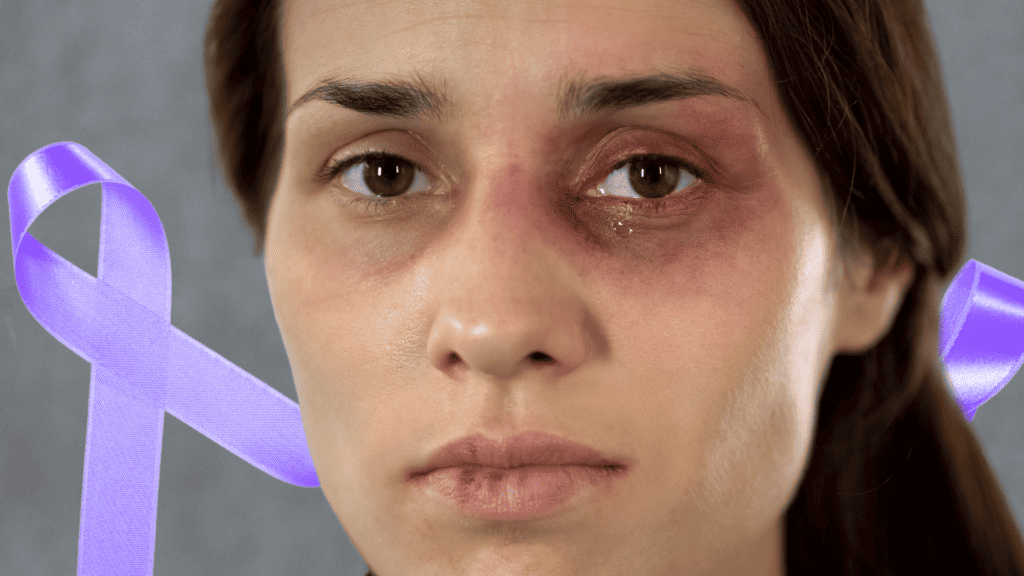
Help for Grandparents Caring for Children In Crisis
Grandparents sometimes have to provide safe and loving homes for grandchildren when their children, the parents of those little ones, are unable to do so.

Domestic violence awareness is critical. It’s not a comfortable topic to talk about, and it’s a heartbreaking reality to face.
The sun was pouring through the windows of my house the morning I fled. Grabbing three trash bags of my most essential belongings and my pets, we ran for safety. I had exactly ten minutes to get out. My abusive husband wouldn’t hesitate to take my life if he caught me. I had discovered that morning that he already had a detailed plan to do it.
In the years and months after my escape, I came to realize the importance of domestic violence awareness. Almost everyone who knew me, including my parents, later told me they had no idea about the depths of abuse I faced in my marriage. It was a painful secret I kept until it became a matter of life or death.
Domestic abuse was not discussed when I was growing up — whether in school, church, or my family — and I was ignorant of the warning signs. In recent years I have had conversations with beloved friends who I had no idea were also struggling with abuse and violence in their own marriages. It is disturbing to know how rampant abuse like this runs.
Domestic violence awareness is critical. It’s not a comfortable topic to talk about, and it’s a heartbreaking reality to face. The truth is that domestic violence runs rampant in our society. Everyone knows someone who has faced it. So, talking about domestic violence helps bring it into the light. And when you pull something out of the darkness and into the light it helps to remove the fear and stigma surrounding it. Also, it brings hope and support to those who might otherwise have none. Overall, domestic violence awareness is critical to bring healing to hurting families.
The United Nations defines domestic violence as “a pattern of behavior in any relationship that is used to gain or maintain power and control over an intimate partner.”
Anyone can be a victim of domestic violence. Men and women of any race, age, class, or faith can be the targets of such behavior. However, domestic violence doesn’t stop at abuse between partners — it often includes children and other members of a family. Domestic violence can do tremendous damage to a family and have a lasting impact for generations.
It is critical to note that domestic violence can be far more than one person hitting or physically injuring another. Domestic abuse can be:
Many men and women believe that if “he/she didn’t hit me,” they are not domestic abuse victims. While physical battering does put a person in danger, the other methods of abuse are just as deliberate, debilitating, and damaging. It is critical to raise awareness that these types of abuse not only happen but are shockingly common. We must find ways to help victims out of these situations, help survivors thrive, and prevent abuse from happening.
How prevalent is domestic violence in our country? The following statistics may surprise you.
Everyone knows someone who is a victim or a survivor of domestic abuse. If you think you don’t know someone who is or who has faced this, think again. Victims overwhelmingly hide abuse because they are afraid that exposing it will make things worse or put them in even more danger. Therefore, it is critical to stay aware and if you see something, say something.
Domestic violence can have a long-lasting and devastating impact on a family. Spouses and children who are the targets of abuse have higher rates of anxiety, depression, PTSD, and suicidal behavior. Victims of domestic violence are at higher risk for developing drug, tobacco, and alcohol addictions.
The effects of abuse don’t stop with the victim. Children who witness domestic violence and abuse are three times more likely to engage in violent and aggressive behavior than their peers. Children also have increased anxiety, depression, insomnia, nightmares, and difficulty concentrating.
Current studies are being done that theorize that trauma caused by domestic violence can make a genetic mark on our DNA and be passed down to further generations.
The importance of raising awareness about domestic violence and its impacts cannot be understated. God can do miracles and provide incredible healing, but we also must take steps to fight this heartbreaking darkness.
If you or someone you know is currently in a domestic violence situation, here are resources that can help.
For more information, further reading, and educational resources, visit:
Now that you have a better understanding of what domestic violence is and how critical it is to raise awareness, how can you help? October is Domestic Violence Awareness Month. While efforts to raise awareness and give help continue all year, this is a great time to learn more and help others understand what a devastating and critical issue we face.
Here are eight ways that you can help raise awareness.
What other ways can you think of to become engaged in Domestic Violence Awareness Month? Let us know!
Christ calls us as His followers to come alongside the hurting and to be beacons of His light. Domestic violence was never God’s plan for marriage and grieves His heart. So, Domestic Violence Awareness Month is an excellent opportunity to reach out, stand up, and speak out about this issue, and share the love of Christ with those who are hurting.